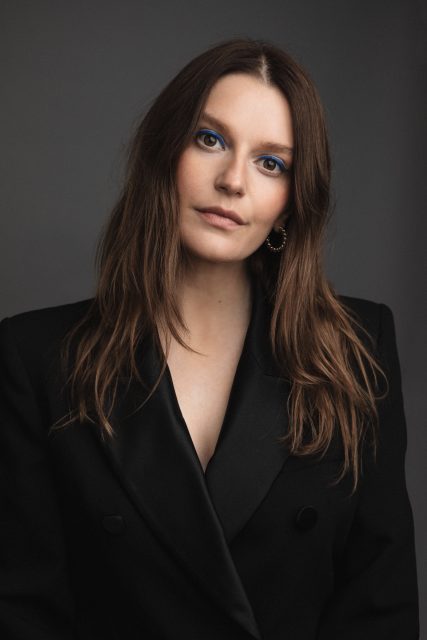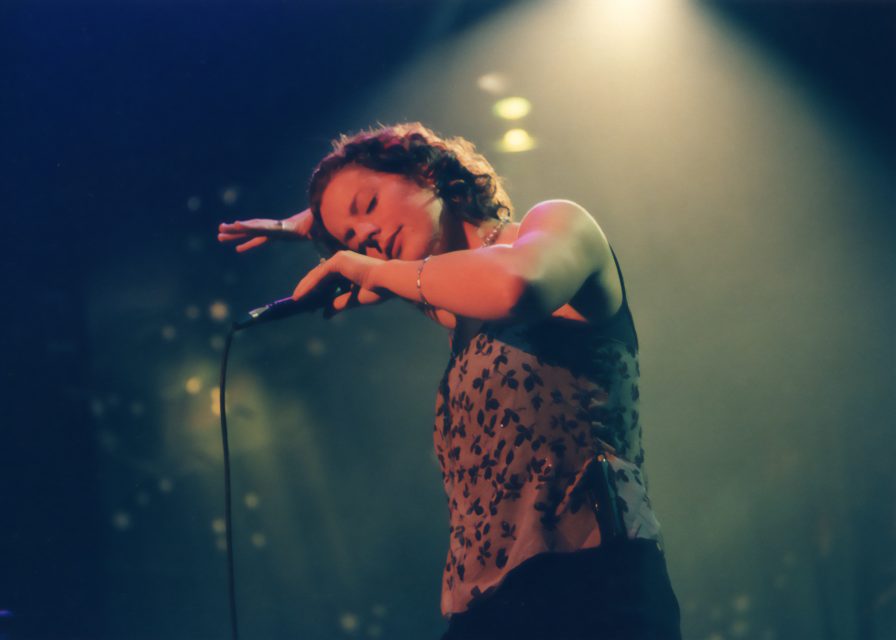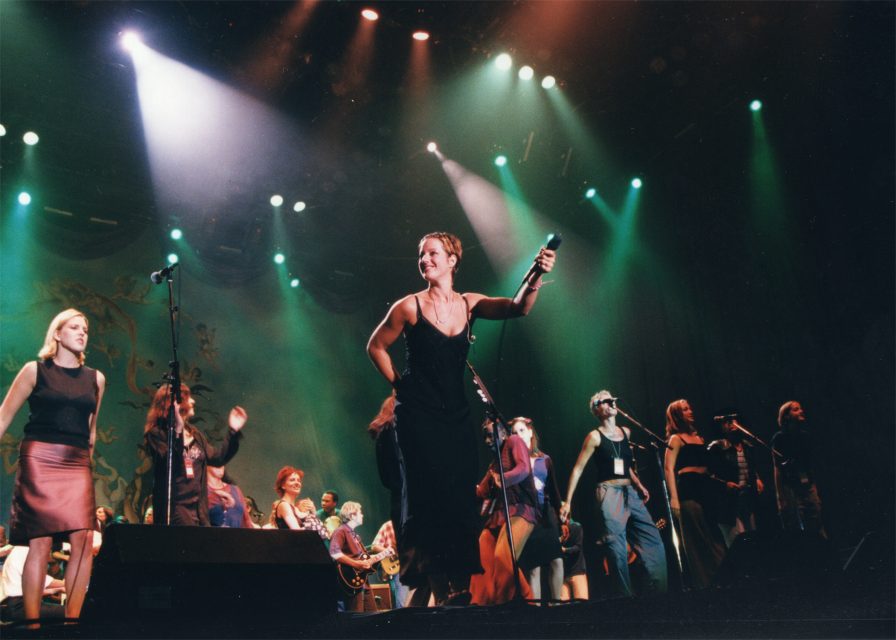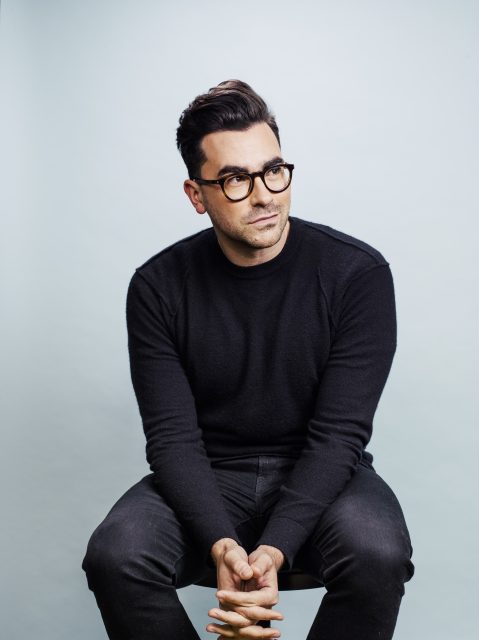Ally Pankiw focuses lens on Lilith Fair
The producers behind the doc Lilith Fair: Building a Mystery were looking for the right director to tell the story of the all-female music festival that broke boundaries and thrilled audiences in the late 1990s. Canadian Ally Pankiw hit all the right notes.

Ally Pankiw knew she was the right director for the job.
The job was helming Lilith Fair: Building a Mystery, a documentary that recounts the creation and legacy of the all-female music festival pioneered by Canadian singer-songwriter Sarah McLachlan in the late 1990s.
“There was a lot of crossover in terms of my body of work and the themes the documentary explores,” says the 39-year-old filmmaker on the line from Los Angeles. Born in Alberta, Pankiw now splits her time between Toronto and L.A.
“I really wanted to do the doc because I was resentful of how Lilith had been framed for me and my generation,” she says. “How things that were feminist and female-focused in pop culture were trivialized and made fun of in that era. Things that were vulnerable, soft and feminine didn't have as much cultural currency as male things. And I was pissed that for a large part of my life that's what I was taught and told.
“So that’s what I wanted the film to do, to look at the power and strength and joy of these women. And we wanted to honour what Lilith actually was — a massive f-cking success and such an underdog success story.”

The Doc’s Origins and Source Material
Based on the oral history of Lilith Fair Vanity Fair published in conjunction with Epic Magazine in 2019, the film draws from more than 600 hours of never-before-seen archival footage as well as new interviews with fans, organizers and the artists.
Original Lilith Fair musicians, including McLachlan, Bonnie Raitt, Sheryl Crow, Erykah Badu, Jewel, Natalie Merchant and Indigo Girls, share their stories of coming together at a time when female artists received limited radio airplay and rarely toured together for fear they wouldn’t attract large audiences.
Pankiw was too young to attend the Lilith Fair tours, which were staged annually from 1997 to 1999 (a 2010 revival didn’t spark the same flame), but was aware of the female artists involved.
“I was only 10 or 11 in the festival’s first year, so I didn't go, but I had a cool older sister who was a grunge queen of the ’90s,” recalls Pankiw. “She was very much one of the reasons I knew about all those artists and loved them. I was also a dancer, so my childhood and teenage years were filled with lyrical and contemporary dance competitions where those artists were the soundtracks for my pieces and solos.”

What Pankiw Brought to the Project
A quick look at Pankiw’s bio and you’ll understand just how suited she was for the task of condensing Lilith Fair’s history into a 99-minute film.
Born in St. Albert, Alberta, Pankiw moved to Toronto to study journalism but realized that she wanted to tell stories rather than report them. She began her career directing commercials and music videos featuring mostly female artists. She created the CBC Gem series Terrific Women and then worked as a writer and story editor on Schitt’s Creek.
An openly queer director, she’s helmed episodes of Black Mirror, The Great and comedian Mae Martin’s show Feel Good. Her acclaimed 2023 debut feature I Used to Be Funny, about a female comic dealing with PTSD and depression, drew on her own experiences.
Her background as a journalism student came in handy when it came to conducting the film’s myriad interviews.
“It was a return to something I did a very long time ago in university, but [interviewing] is also akin to directing. Your job as a director is about getting an emotional performance out of someone, whether it's someone talking about their own life or telling an anecdote, or an actor acting. Your job is to create a safe, open channel for people to be vulnerable.”
And the artists didn’t disappoint.
“They were all truly amazing,” says Pankiw. “Every single one of those subjects was delightful, funny, sad and rage-inducing. They just are all such funny people and have such a great sense of humour about everything that they've had to be up against.
“And then there were some really beautiful surprises,” she continues, “like Sarah [McLachlan] allowing us to read and use some of her journal entries. And Natalie Merchant brought her journal from her time on Lilith. It was like poetry, she was reading from it and we were all crying. There are so many moments like that, many didn’t make it in the doc or it would’ve been 100 hours long.”
Dan Levy’s Involvement
Pankiw’s good friend and Schitt’s Creek collaborator Dan Levy is one of the film’s producers. The pair met in Los Angeles more than a decade ago, and Pankiw says working alongside Levy, a huge Lilith Fair fan, made her job easier.

“Dan was working on the first season of Schitt's Creek when we met,” recalls Pankiw. “We were both gay Canadians in L.A. and it was kind of inevitable that we’d meet. We started talking about comedy and being from Canada, and then he saw one of my short films, which led me to writing on Schitt's Creek.
“We both respect each other's work ethic and taste. I also think we're both relentless in terms of trying to do things for the right reason. And, especially on this doc, he's a very good producer to have in your corner because he will fight for the right thing. For all those reasons he's a lovely collaborator.”
Lilith Fair’s Legacy
For Pankiw, the film represents a chance to inform and inspire a new generation of female musicians and music fans.
“I'm really interested in stories around intergenerational relationships, between women specifically,” says Pankiw. “We were able to connect Lilith Fair artists to modern-day artists like Olivia Rodrigo. Again, it’s that idea of the cool older sister in society. The women who come before, like a whisper network, or passing the baton, or sending the elevator down and opening doors as they go and leaving them open.
“That’s such beautiful legacy of Lilith and Sarah especially. Her wanting to inspire other artists to behave in that way. I'm so happy we were able to celebrate that contribution.”
